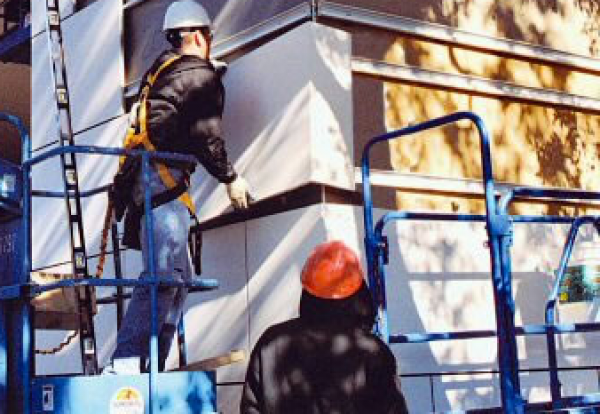The house builder had previously set aside £245m to cover the full fire safety remediation of its building portfolio. But this morning Taylor Wimpey said the expected cost had now soared by over a third.
In a statement alongside lacklustre results for the first six months of the year, chief executive Jennie Daly said: “We have reassessed the remediation costs based on tenders received in the first half.
“Based on this updated information and enhanced cost appraisal, the expected fire safety remediation cost has increased by £88m, taking the total provision to date to £333m.
“The increase is due to escalation of costs based on recent tenders, increased project delivery administration costs, including the funding of the Building Safety Fund pre-tender costs and a small number of new buildings being added.”
The soaring cost of fire safety remediation work to the housing industry amid Government changes in scope of buildings requiring work is illustrated by the sharp rise from initial estimates.
Just three years ago, Taylor Wimpey expected recladding and fire remediation to cost £125m.
During the first half Taylor Wimpey continued to progress work with building owners, management companies and leaseholders and remained committed to resolving issues as soon as practicable for its leaseholders.
The house builder said 211 buildings were within the scope of the provision, all of which have been now assessed by its specialist team.
The hike in provisions contributed to a 58% plunge in pretax profit to £100m in the first six months of this year.
Underlying margin for the first half was lower, given residual build cost inflation in the order book and weaker pricing, however this was partly offset by higher profit from land sales.
Taylor Wimpey said that prevailing build costs on new tenders were now flat, with its self-help value improvement measures leading to slight cost deflation.
Daly welcomed the new government’s planning reforms unveiled yesterday as a “recognition that planning is a major barrier to economic growth”.
“Though we expect changes to take some time to impact, we see the planning reforms outlined by the new Government as key to unlocking future years land supply and the investment in skills and resources necessary to support future housing need.
“We have been actively preparing for planning changes and focused on developing high-quality planning applications from the strategic pipeline.
“We have around 30k applications in the planning process and additional applications ready to go if we see the proposed grey belt changes come through.”





